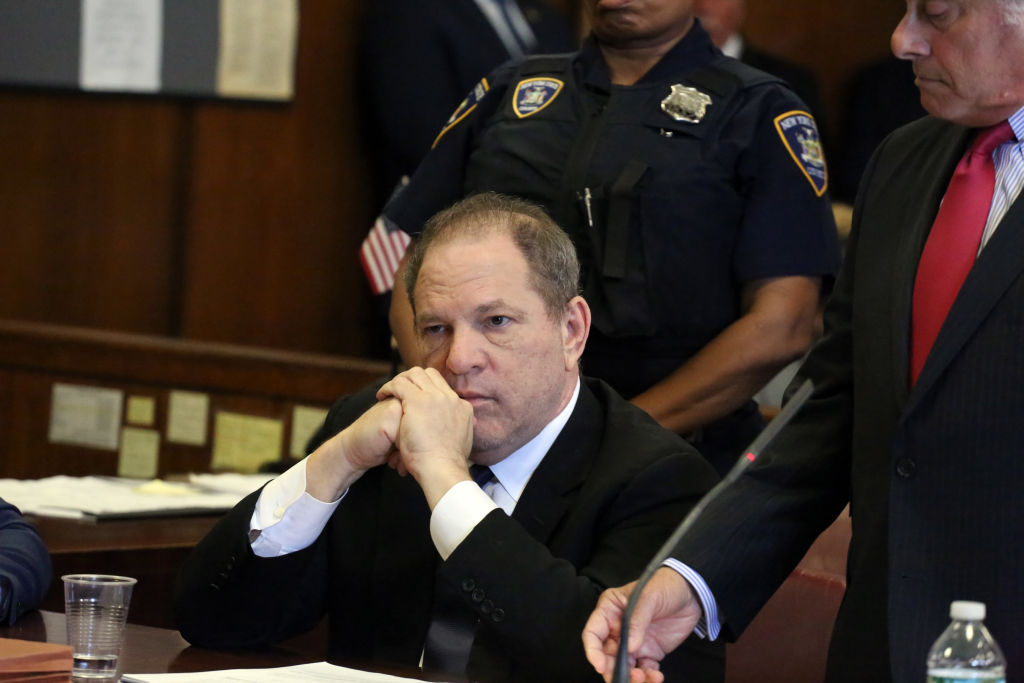Harvey Weinstein was a catalyst for the resurgence of the #MeToo movement, especially after questions began to emerge about irregularities at the office of the DA investigating him. Now another chapter in the sordid story has begun: New York Governor Andrew Cuomo, currently facing an embattled primary, mysteriously put a pause on the state attorney general’s investigation into the Manhattan DA’s handling of the case.
Or maybe not so mysteriously. Shortly before he made the decision, Cuomo’s campaign received a $25,000 donation from the firm of David Boies, an attorney historically linked with Weinstein.
This situation started in 2015, when Boies donated to the campaign of Manhattan District Attorney Cy Vance Jr., the man charged with investigating Weinstein. Ultimately, the DA decided not to prosecute a 2015 sexual assault case, despite the fact that there was considerable evidence available – including audio from a wire worn by the victim — certainly enough, some felt, to bring the case to trial and give a jury a chance to hear it. After public outcry, Vance opted to move forward with charges.
But legal advocacy group Time’s Up called for closer scrutiny of the circumstances of this case, given the mounting allegations against Weinstein. In response, Cuomo directed the state attorney general to investigate, with the aim of determining whether something improper happened. Along the way, the state’s attorney general was forced to resign because of intimate partner violence allegations, and the current attorney general, Barbara Underwood, was put on the case.
In June, Cuomo opted to put a hold on the investigation for six months, though the news only just broke. Spokespeople for his office said this shouldn’t affect the Manhattan district attorney’s ability to continue looking into the Weinstein case — and could actually even help the DA’s office maintain an impartial investigation.
But that doesn’t mean this issue is over; even if Vance ultimately did decide to charge Weinstein, if campaign donations influenced his earlier decision-making, that needs to be exposed and discussed.
In a statement provided to Capital & Main, Cuomo’s office said:
The attorney general’s investigation was suspended to avoid situations in which Weinstein’s defense attorneys would be able to constantly petition the attorney general’s office for information about what they uncovered and undermine a criminal prosecution.
Opting to suspend the investigation for the duration of the case could mean that it’s years before the state attorney general has an opportunity to look into the Manhattan DA’s actions. Justice delayed can be justice denied.
The attorney general’s office is also conducting a separate civil rights investigation into Weinstein, and spokespeople say that investigation will continue.
Meanwhile, campaign finance records show nearly $250,000 in donations to Cuomo over the years. While Weinstein and Boies have since parted ways, the two are clearly still connected — and Boies would have a vested interest in limiting investigation into his donations to Vance over the years. The governor’s office insists that his decision is not connected to Weinstein, noting that Boies no longer represents the disgraced producer, but there’s certainly an appearance of impropriety here.
The series of decisions around Weinstein and some other high-profile cases, however, is leading people to ask whether campaign donations are influencing policy decisions at law enforcement agencies in New York.
The practice of electing people like district attorneys, and thereby creating room for political influence, is worrisome to some members of the public who would prefer to see these public figures unbiased; if wealthy people can buy their way out of investigations and prosecutions, that’s an injustice to their victims as well as those who don’t have that level of financial privilege.
Press freedom is under attack
As Trump cracks down on political speech, independent media is increasingly necessary.
Truthout produces reporting you won’t see in the mainstream: journalism from the frontlines of global conflict, interviews with grassroots movement leaders, high-quality legal analysis and more.
Our work is possible thanks to reader support. Help Truthout catalyze change and social justice — make a tax-deductible monthly or one-time donation today.
